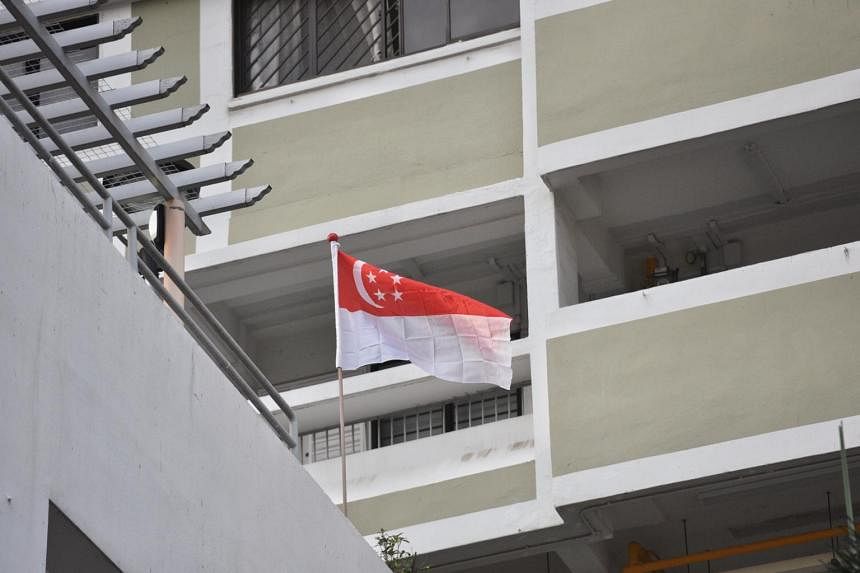SINGAPORE - The national flag could soon be used more freely by companies and individuals during the National Day period in a proposed loosening of the law on the use of national symbols that the Ministry of Culture, Community and Youth (MCCY) is now inviting the public to give feedback on.
MCCY on Wednesday (July 15) said it intends to replace the current Singapore Arms and Flag and National Anthem (Safna) Act and rules with a new National Symbols Act and related regulations, which would increase the instances when people can use the national flag on clothes and other products without approval, especially between July and September.
However, the maximum fine for the misuse of national symbols would also be increased 30 times from a $1,000 fine to $30,000 to deter disrespectful use in this less regulated context. Those deemed to have misused the symbols deliberately could also be jailed a maximum of six months.
The ministry hopes that the new rules will help people feel more ownership towards the national symbols while continuing to protect their sanctity, which it said were the two key concerns that it has gathered from public feedback so far.
The public consultation exercise until July 8 is part of an ongoing review of the rules surrounding national symbols, and is likely to result in an amendment Bill in Parliament later this year.
MCCY's proposed changes relate mostly to the use of the national flag. If approved, it would be legal to incorporate it into people's attire for non-commercial purposes all year round without the need for approval, currently required under Safna.
During the National Day period of July to September, people would be able to use it for decorations such as stickers, posters and decals without needing to apply for a permit, while companies can similarly use it for commercial purposes or advertising as long as the uses are respectful.
Where a use of the flag is deemed disrespectful, a designated person, such as the President or a minister, could issue a stop order. Notably, MCCY has chosen not to change its stance on the prohibition of the use of the flag on coverings such as tablecloth and receptacles such as mugs, as well as on furniture.
MCCY said factors that influence the decision on whether the flag is appropriately used include the purpose of the design, whether the flag is depicted as distorted or damaged, and the nature of any image or text that appears together with the design.
During occasions of national significance outside the July-to-September period, a designated minister would also be able to allow the public to display the flag to express national pride and solidarity - a proposal MCCY said was informed by recent experiences during Covid-19 and the Olympics.
Meanwhile, the use of the National Anthem would also be slightly relaxed to allow for commercial use on a case-by-case basis, although it would still be subjected to government approval.
MCCY cited the sale of toys featuring the National Anthem as an instance of abuse when an application is unlikely to be accepted, while a more germane use would be the sale of a recording of the National Anthem that was performed during a ticketed concert.
On the drastically increased penalty, MCCY said the current maximum fine of $1,000 was set in 1959 and has not been updated since. More use of the national symbols for expressing pride and solidarity is only possible if stronger safeguards are erected, it said.
"Given inflation and the prevailing standard of living in Singapore, $1,000 is assessed to be an insufficient deterrent to individuals who disrespect our national symbols," it said.
The public consultation exercise comes after a report by The Citizens' Workgroup for National Symbols comprising 47 Singaporeans was released in July last year.
The group, convened by the Government to relook national symbol rules, made varied suggestions that included easier use of the national symbols in street art, new media, food and fashion, and a one-stop online reporting platform.
The proposed new Act is less extensive than the work group’s report’s recommendations.
The workgroup also suggested that more national symbols beyond the three in Safna - the flag, the anthem and the state crest - be formally recognised.
MCCY said the proposed law would also include the Pledge, presidential symbols and the public seal that was introduced after 1959.
These were introduced after Safna was introduced that year, and would continue to be governed by strict laws around their use.
The public consultation exercise will end on July 8 at 6pm, and members of the public can submit their views at this website.
Correction note: This article has been edited for accuracy.


